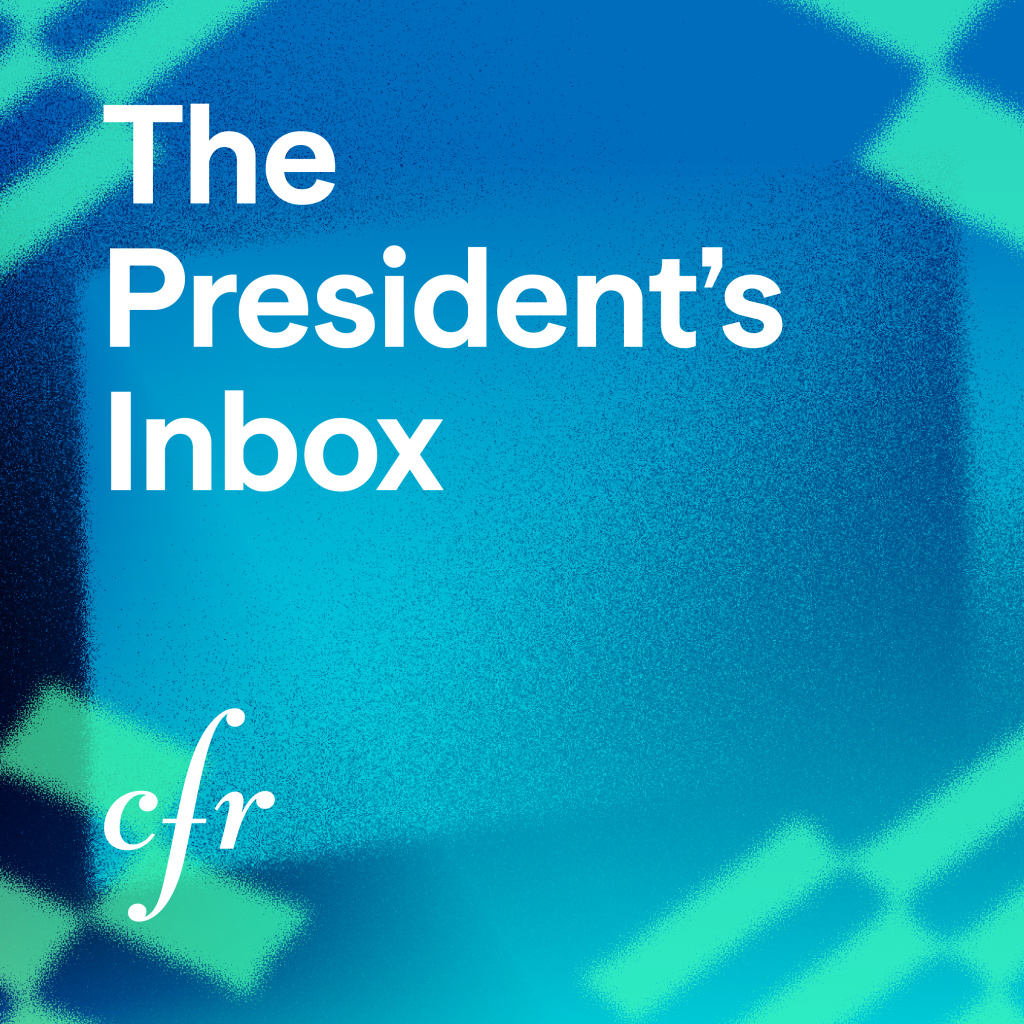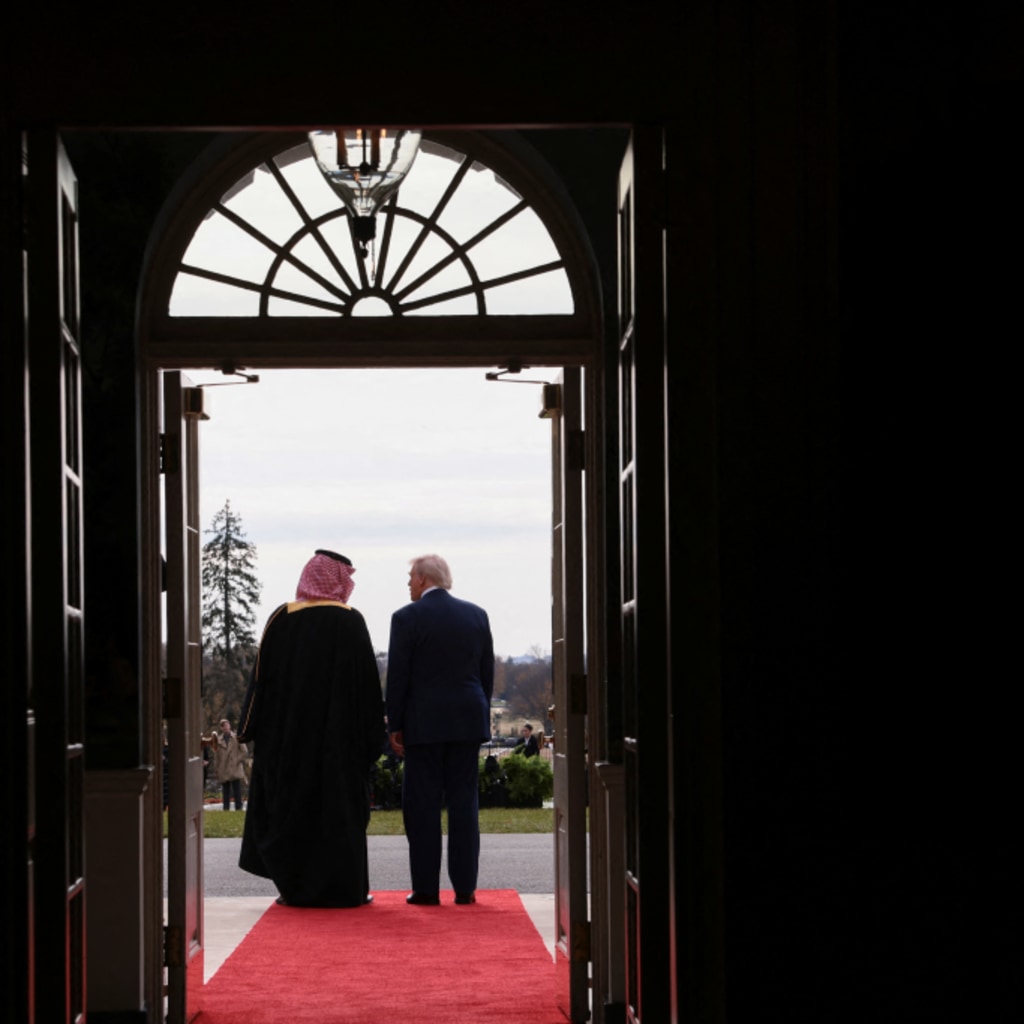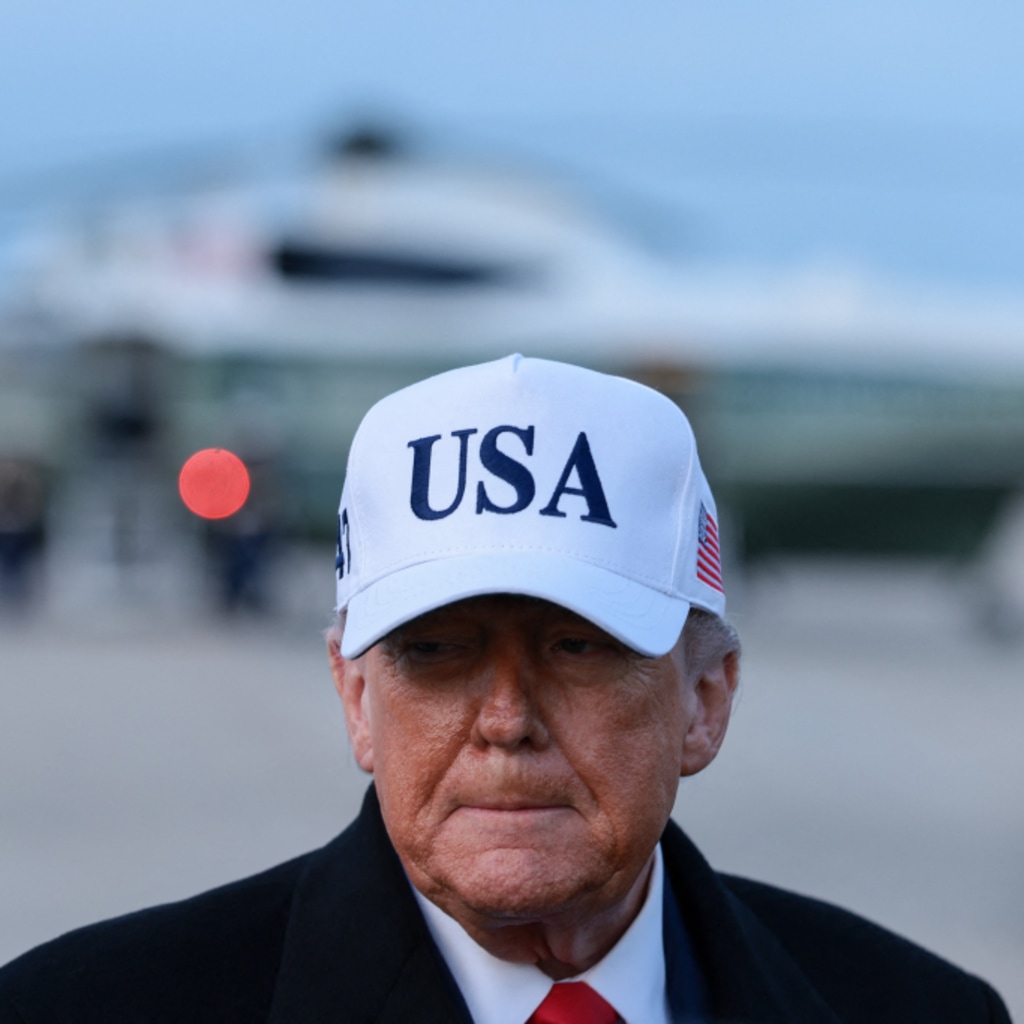China Reacts to Trump’s Election, With Zoe Liu (Transition 2025, Episode 7)
Zoe Liu, the Maurice R. Greenberg Senior Fellow for China Studies at CFR, sits down with James M. Lindsay to discuss how Trump’s victory is being viewed in China and what his presidency will mean for the future of U.S.-China economic relations. This episode is the seventh in a special TPI series on the U.S. 2025 presidential transition and is supported by the Carnegie Corporation of New York.
Published
Host
- James M. LindsayMary and David Boies Distinguished Senior Fellow in U.S. Foreign Policy
Guest
- Zongyuan Zoe LiuMaurice R. Greenberg Senior Fellow for China Studies
Audio Producer and Sound Designer
- Markus ZakariaAudio Producer & Sound Designer
Editorial Director and Producer
- Gabrielle SierraDirector, Podcasting
Show Notes
Mentioned on the Episode
Zongyuan Zoe Liu, “Why China Won’t Give Up on a Failing Economic Model,” Foreign Affairs
Transcript
LINDSAY:
Welcome to the President’s Inbox. I’m Jim Lindsay, the Mary and David Boies distinguished senior fellow in U.S. foreign Policy at the Council on Foreign Relations. This is the seventh episode of a special presidential transition series here on the President’s Inbox. From now until Inauguration Day, I’m sitting down with experts to unpack who will staff the Donald Trump administration and how it will likely approach the many foreign policy challenges it faces. This week’s topic is China reacts to Trump’s election.
With me to discuss what Trump’s return to the White House means for U.S.-Chinese relations, particularly their economic relations, is Zoe Liu. Zoe is the Maurice R. Greenberg senior fellow for China studies here at the Council on Foreign Relations. Her work focuses on international political economy, global financial markets, and critical mineral supply chains. Her writings include her 2023 book Sovereign Funds: How the Communist Party of China Finances its Global Ambitions, and a recent piece for Foreign Affairs magazine titled “Why China Won’t Give Up on its Failing Economic Model.” Zoe, thank you for joining me on the President’s Inbox.
LIU:
Jim, thank you very much for having me.
LINDSAY:
Listen, I want to jump right in and begin with sort of the big macro question. What has reaction been in Beijing to Donald Trump’s election?
LIU:
Two words not surprised. And four words, not surprised. Not happy.
LINDSAY:
Okay. I understand why they’re not surprised. Why is Beijing not happy?
LIU:
There are two perspectives I guess why Beijing is not necessarily happy. First is that the Biden administration has stabilized the U.S.-China relationship with the emphasis on putting guardrails, reducing uncertainties, but the return of President Trump to the White House means everything is going to be uncertain. And the second point is that since President Trump came into office during his first term, he increased the tension on trade and technology issues making these two issues a very thorny part of the relationship. And President Biden’s administration has been a continuation more or less of Trump’s policies. So from those two perspectives, Beijing is not happy.
LINDSAY:
Okay. I want to dive into this question about tariffs and restraints or constraints on the flow of high technology goods. But before we do that, perhaps you could spend a moment just talking about your assessment of the team of people that Donald Trump is bringing with him to work on U.S.-China issues. We have a national security advisor in Mike Waltz who is I think fairly described as a China hawk. Senator Marco Rubio has been nominated to be Secretary of State, also a China hawk, but obviously U.S. relations with China and not just national security relations, very important economic interest. So we have Howard Lutnick at Commerce, who as Trump has described it will have the trade portfolio, but you also have Scott Besson who’s going to be Secretary of the Treasury. So as you sort of understand it, as Beijing looks at the Trump team, not just Trump himself, what conclusions do you think they’re drawing?
LIU:
First of all, I think the market reaction to Trump’s team as well as Trump’s policies so far seems to be calm. Market seems to be not caring too much at all. So I think based upon Beijing’s understanding of how Trump evaluated his policy effectiveness, which is a stock market performance. So from that point of view, I guess Beijing has no reason, at least for now, to overreact. Whether it is his policies, his threat of tariffs or his choice of people. But at the practical measure, I would say Senator Marco Rubio, so far he is still being sanctioned by Beijing, meaning he cannot go to China or for that matter making any tangible investment in China. So from that perspective, there needs to be some practical measures to be resolved from Beijing’s point of view.
LINDSAY:
So why is it Zoe that China placed sanctions on Marco Rubio?
LIU:
For his stance on Taiwan, on human rights, as those are the issues that China considered as China’s domestic interest and more importantly a core interest that is not supposed to be pointed a finger by any foreign entities or individuals. And from Senator Marco Rubio, his track record has been quite outspoken, not just on human rights but also on Taiwan.
LINDSAY:
So I would guess that Beijing is going to decide to lift those sanctions. I find it hard to believe that when you have the two great powers in the world, that one side is going to refuse to allow the foreign policy spokesman for the other to visit. Am I wrong in drawing that conclusion?
LIU:
No, absolutely not. But how China or Chinese government can do that gracefully without sort of, losing face, that is a big challenge in a lot of measures.
LINDSAY:
Okay. And so do you think that will happen quickly or you think they will take their time in Beijing making this decision?
LIU:
I think Beijing may take its time. At least so far, Senator Marco Rubio needs to be confirmed by the Senate and perhaps after he’s confirmed, maybe Beijing will make its own policy adjustment.
LINDSAY:
Yes, I would imagine Beijing will be paying close attention to what it is that Senator Marco Rubio says in his confirmation hearings with the Senate, which I imagine will be quite civil. The Senate has a long tradition of being quite kind to its own members who are moving into an administration. Yes, there are some exceptions, but I think it will be, I wouldn’t expect a lot of fireworks in the Marco Rubio Senate confirmation hearings.
LIU:
I would agree with you, but I think Chinese policymakers also recognize that President Trump, he seems to be a person or based upon Beijing’s interaction with him during his first term, President Trump enjoys personal theater and theatrical aspect of foreign policy and he seems to be unwilling to share the spotlight. So from that point of view, if Beijing were able to establish direct channel, direct conversation with President Trump, then the people he appoints, the political appointees in the cabinet and in different government agencies may seems to be less important. So from that perspective, I think is interesting for me to read the Chinese news and recognize that there are a lot of discussions about Elon Musk. It feels like in the eyes and the minds of Chinese media and the Chinese policymakers there is President Trump and then there is shadow president Elon Musk. But I’m not exactly sure how willingly these two strong figures can coexist and for how long.
LINDSAY:
Well, that is true. We also have to wonder how the Trump foreign policy, economic policy teams are going to work given the array of viewpoints they bring, levels of experience, closeness to Trump and the rest. It could work very well or it could lead to a lot of bureaucratic infighting. But that also brings up Zoe, the point you made earlier about Trump’s unpredictability or the uncertainty that surrounds Trump. And I can understand from a Chinese government point of view why they would want to go to Trump himself since he has a long track record of just ignoring what his advisors say or turning on his advisors. That was certainly the case during the first term.
And I note that Trump extended, as I understand it, an invitation to Xi Jinping to come to Washington to attend his inauguration. And my understanding is that President Xi has declined the invitation. Should I read anything into that?
LIU:
Personally I would not read too much into it, but I am surprised by the invitation. Jim, correct me if I’m wrong, is it right that no foreign head of states has ever been invited to a presidential inauguration?
LINDSAY:
I can’t say it never has happened. It’s not typical. That’s how I put it, Zoe.
LIU:
Here I think there are, from President Trump’s perspective, I think it’s actually very smart because he sent an invitation and that is his way of showing strength in the sense that this is a big party for me, the world is looking, and I want the world arguably second most powerful person to come over here and be a spectator just to watch me, to be an audience. I think that is quite smart. And from Beijing’s point of view, why Xi Jinping would want to come, first of all, there is the threat of a tariff. Secondly, he’s not very well respected in terms of his economic policy measures or the way that he handled COVID, at least...
LINDSAY:
He being Trump?
LIU:
Both President Xi Jinping and Trump. President Xi Jinping in terms of his economic policy uncertainty and the way he handled COVID in China. So he’s not necessarily being very well respected in terms of his policy mistakes leading to or exacerbated China’s economic wars, although he’s not the person created the economic problems, but his policy measures has certainly exacerbated them. So, so far we don’t necessarily see massive protests on Chinese street, but Chinese people in private conversations, they do recognize the challenges and economic wars that President Xi Jinping has imposed or caused.
LINDSAY:
So President Xi has his own domestic problems that he has to attend to.
LIU:
Exactly the same as President Trump has his own domestic problems. But it seems that President Trump so far has been able, or for that matter, highly skilled at capitalizing on the wounds of domestic politics.
LINDSAY:
So let’s sort of look forward if we can, put our future glasses on. It strikes me, Zoe, that President-elect Trump has come out swinging in terms of his policies toward China. He’s not president yet, but that hasn’t stopped him from laying out what he intends to do. And most notably, he made news when he says that he intends to impose a ten percent tariff above any additional tariffs on imports from China unless China does something about fentanyl and immigration. This comes after a campaign in which Trump talked about tariffs of various percentages on China. Sixty percent was a number I heard an awful lot of. And Trump has talked about a hundred percent tariff on members of the BRICS of which China is a leading member if they dare to go ahead with trying to create a rival to U.S. currency. So as you understand it and as you read the papers and the chats back in China on this score, what are people making of all of this churn even before Donald Trump takes the oath of office?
LIU:
My understanding is that there are, broadly speaking, two groups of understanding. The first one is regardless of the exact numbers, tariff is coming, but whether it is going to be ten percent, seventy percent, sixty percent or any other number...
LINDSAY:
Or all of the above.
LIU:
Right, that is up to negotiation. And the second camp is basically preparing for the worst. So either camp, it doesn’t matter which camp folks subscribes them to, one can expect that Chinese policymakers are preparing for the worst, but hoping for the best. And I think you see this through the readout of the recent December 12th Central Economic Work Conference. President Xi Jinping talked about changes in the external environment and a lot of challenges from a global market, and hence China needs to focus on expanding domestic consumption, domestic market, or domestic demand. So regardless of President Trump’s actual tariff number, I do think this is an opportunity for China to resolve its domestic insufficient demand problem.
And by the way, I personally don’t necessarily think tariff is going to be a bad thing because if we take a step back by looking at history, when China joined the WTO, Chinese policymakers they were able to impose or force reform, make difficult choices by leveraging external factors, right? Hopefully this, if they were able to leverage external challenges, meaning tariff, not just from the United States, but from Canada, from Brazil, and by the way from Russia as well, if China were able to leverage this and pushing forward some reform, this is not necessarily bad for China.
LINDSAY:
Let’s talk a little bit about that Zoe, and maybe you could unpack for people who haven’t followed the Chinese economy closely, what the exact nature of the problem is in China. What is this failed model you referred to? I think for a lot of people who don’t have economic degrees, when they hear insufficient demand, they’re really not sure what that translates to in a practical sense. So maybe if you just sort of walk us through what the real challenges that Xi faces.
LIU:
So the economic model that worked for a long time and has also contributed to China’s double digital growth, transformed the China from one of the poorest country in the world to the second-largest economy, is one that featured or still features export-oriented growth and state-led investment in strategic sectors. So if you bear with me one second, let me decompose the GDP growth. Broadly speaking, GDP growth, the y equals to domestic consumption investment and net export.
LINDSAY:
Econ 101.
LIU:
So the Chinese economy, the economic model, so when Deng Xiaoping started to reform and open up back in 1978, his model is one that prioritizes investment and export. And as a result, the system so far or over the past four decades has perfected a lot of institutions and mechanisms from banks to state-owned enterprises to the five-year plans to focus on how to maximize the support of investment in strategic sectors and export.
LINDSAY:
So strategic sectors talking things like steel, cement, lots of other things.
LIU:
Exactly. In the early days in the nineties it was a steel, coal, glasses, or for that matter things that can contribute to GDP growth in the traditional sense. Whereas now the strategic sectors include things from quantum computing, chips, artificial intelligence, and things like that. Whereas in this bigger context, what has been left out is household consumption, meaning the Chinese economy, Chinese factories, we are very good at building EVs, batteries, but if you look at a Chinese household, they tend to save but not spend. Americans tend to spend like every week I guess...
LINDSAY:
And not save.
LIU:
Well that is true, but there are factors leading to American’s pattern, meaning there is robust social safety net and the system is allowing people to try and fail such as our bankruptcy court, right? Whereas things like this in China is not as comprehensive or robust as in the United States. So as a result, the Chinese system lead to this over-investment, over-produce, but under-consumed economic model. It worked when China was growing from a very low GDP starting point, but as it became the second-largest economy, the drag on the economy from household consumption part becomes bigger and rising trade protectionism simply challenges the continued export-led growth.
LINDSAY:
So you see this in some sense as a potential opportunity for Xi to make tough economic choices at home than he’s refused to thus far. Is that your argument?
LIU:
I think this at least presented an opportunity to present an argument to his political constituencies to say, in order to address the challenges, in order to continue grow the Chinese economy in a more sustainable model, this is the time for us, the Chinese, to focus on expanding domestic market is simply because external environment is bad. He can present the argument, but to what extent he’s willing to do this and how fast he can execute it are different measure. And so far the readout, my readout from the Central Economic Work Conference suggested that he still wanted to expand domestic investment in strategic sectors.
LINDSAY:
And my sense is that China, while it is a communist country, still has its own internal politics, invested interests, and those groups that are winners under the current system are going to fight really hard to protect their turf, which makes it hard to change things. And I think you’re quite right, Zoe, to stress that it’s not just the United States that’s reacting to the overproduction, over-export of goods from China, many other countries are as well, including other members of the BRICS. Brazil has slapped tariffs on Chinese goods because they’re worried that China’s going to put their own manufacturing sector out of business.
LIU:
Absolutely. It’s not just the United States or the EU or Canada. Emerging market economies or developing countries in general are also very much concerned because for a long period of time, China has been one of the world’s largest raw material importers to support its domestic economic growth and industrialization, right? So from that point of view, China imports relatively cheap raw material and exports higher value-added goods to emerging market economies. From their point of view, if they wanted to grow their economy, if they wanted to climb up the value chain, they don’t see this as necessarily the fair trade that they wanted.
However, from Beijing’s point of view, Beijing always argued that there is no overcapacity because the world market is big and why not? Why not let China produce for the rest of the world? But you see the argument from Beijing’s point of view is very different.
LINDSAY:
I understand, and I should note that to some extent, countries particularly in Southeast Asia could benefit from U.S. pressure to de-risk as we call it, U.S. and Chinese economies because producers are relocating, let’s say from China to Vietnam, whether to avoid political problems with the United States or to get around tariffs and the rest, so that to some extent could benefit other countries.
LIU:
Jim, I think you’re absolutely right, and I think Vietnam is one classic example in terms of benefiting from the supply chain diversification, if you will. It’s not just foreign companies, actually is also Chinese companies. And this is I think some of the nuance here. Perhaps at least Western media has not paid enough attention. People tend to focus on Beijing’s industrial policy, Beijing’s strategy to help Chinese companies go overseas and sell overseas. But in fact, because of China’s intense domestic competition, industrial policies, strategic agenda lead to a lot of local governments investing in the same industry. So you end up having thousands of companies working in the same sector and you end up having intense domestic competition. And the words to describe that in Chinese is called neijuan or involution. And in fact, the recent central economic conference, Beijing talked about it, Beijing recognized that this is a problem and we need to reverse this negative trend of involution.
But see from firm’s perspective, if I run a company, I realize that if I can sell to other market at a higher margin, why am I not doing it? And by the way, if it means that rising tariff means that it might be beneficial for me to set up companies overseas, I might as well just do it. So it was in this context that you started to see Chinese companies have, they themselves have go out to invest in Vietnam, in Mexico, and in countries like Morocco. And I think Morocco is interesting case because it’s one interesting country that has a free trade agreement with European Union and the United States and President Xi Jinping recently stopped by Morocco after his visit to Brazil for the G20 summit.
LINDSAY:
Well, I will note that Donald Trump has talked about tariffs in the context of trade with Mexico with which we have a trade agreement. It would not surprise me that if we were to see significant trans-shipment through Morocco, that a Trump administration might decide to redefine the nature of the agreement the United States has with Morocco.
I want to change the focus and sort of look at it from the other perspective, Zoe, because we’ve been talking about how China is vulnerable or under pressure from tariffs. I want to talk about what leverage China has in this discussion with the United States. We’ve seen this movie at least once before during the first Trump administration. What are the things that you would expect Beijing to do if Donald Trump does go forward with his tariffs?
LIU:
Two things I would want to highlight. The first one is if we were to engage in a escalatory trade war or tariff scenario, I would anticipate that this time around China would be more willing to weaponize its dominance in critical mineral supply chain. And the reason why China is more willing to impose export controls this time is because over the past few years, the United States, European Union, Japan, or broadly speaking, the United States and its allies and partners have recognized their vulnerability and have developed different mechanisms and partnerships to develop alternative supply chains for critical mineral.
In the United States, the Biden administration developed the Mineral Security Partnership. In Japan and EU, their own definition of economic security strategy include a critical mineral. So from China’s point of view, its leverage is going to diminish as the rest of the world build out our alternative. So why not use it while you can?
LINDSAY:
Well, let me ask you about that because hasn’t China already taken a step in that direction? Earlier this month they slapped bans on shipments of gallium, germanium, antimony, and something called superhard materials to the United States.
LIU:
Yes, and we would anticipate that China may even using more stringent measures regarding export controls on critical minerals. And then I guess the second response that I would anticipate China to do is to further strengthen its anti-sanction and anti-tariff measures. China may use its legal framework to weaponize access to Chinese market, meaning companies would be in this difficult choice to make a decision. If you wanted to sell to Chinese market or have access to the Chinese market, you cannot, or for that matter, following the Chinese law, it would be illegal for the company to be in compliance with U.S. export controls.
LINDSAY:
And how would that play out?
LIU:
From a company’s point of view I think this is sad, in the sense that A, it means rising compliance costs, but maybe this is good for employment in the sense that it will require companies to hire more compliance officers and things like that.
LINDSAY:
So if you’re in the compliance business, it’s good.
LIU:
Yes, and for that matter, I guess strategic consulting business is going to be good in the sense that companies needs to know more about the nuances of the direction. However, this is going to be a bad news, really bad news for consumers in America or for that matter is going to be bad for household in China as well. And in fact, this feeling bad about their economies is a shared sentiment in the U.S. and in China, although I do think that American household would have more reasons, more real reasons to feel better about the American economy because by lot of measures, the American economy is good.
LINDSAY:
Well, and that presumably would be a political problem for Donald Trump since he ran on a campaign in which he vowed that he was going to cut inflation for American consumers.
LIU:
Absolutely, and you see similar trend in China as well, and this is why I think a lot of measures, the United States and China, at least at a societal level, are much more similar than different because Chinese consumers and Chinese household, they are also not happy, not just because of the general weak economic environment, but also because of their actually weak and stagnated wage growth and income growth. I remember looking into the numbers. Up until 2016, China’s GDP growth and household income growth were on par. But since after 2017, household income has been lagging behind GDP growth.
So it’s going to be a big challenge for China going forward in terms of A, growing the GDP, but more challenging perhaps is how to translate the rise of the Chinese economy globally, translate that to benefit the Chinese people. I guess a sense of unhappiness sort of swept through not just the American household but also the Chinese household. But if tariffs were to become reality, then we will just have to anticipate that buying a home and decorating home, buying TVs, everything is going to be more expensive.
LINDSAY:
I’ll just note Zoe, I came back from a trip to Europe and this sense of unhappiness about where the economy is going and how people are being left behind, it’s felt very strongly and we’re going to see it reflected very shortly in the German national elections. Germany has many of these problems, perhaps even worse.
I want to close by turning our conversation on its head. The premise in our discussion has been the United States is going to do something and force China to react. Is there any indication that President Xi may go on the offense and make a proactive offer to Donald Trump? I mean, we do have the memory of the China Phase One trade agreement. I don’t think that ever really went anywhere. So maybe it’s premature to talk about a Phase Two, but is there any talk in China about trying to gain the initiative rather than wait for Donald Trump to say it’s a ten percent or a twenty-five percent or a sixty percent tariff?
LIU:
The Phase One trade deal by a lot of measures is another example of China failed to deliver on its promises. China at most imported about sixty percent of what it agreed to purchase from under the Phase One trade agreement. And yet so far I haven’t heard anything, anybody talk about a potential Phase Two trade deal. But the idea of a grand bargain is certainly circulating around not just in DC circle or but also in Beijing. And the reason why Beijing see the potential window opportunity for a grand bargain is simply because President Trump is much more flexible and not bounded by any ideology.
So from that perspective, a group of people in Beijing did wanted to propose a potential grand bargain. Of course, there are two things they wanted. One is Taiwan and the other is technology. But given that President Trump during his first term started the whole Huawei ban, I don’t think Beijing is necessarily going to get what they wanted. But if a grand bargain means that the United States and China can work out some mechanism such that China can offer a voluntary export restriction or for that matter carve out export market, perhaps that is something that can be imagined. And I do think that China may be willing to actually consider voluntary export restriction because they have been actively learning from Japan’s experience in the eighties.
LINDSAY:
That was the experience in the 1980s. Yep.
LIU:
Yes. From my conversation with my Chinese interlocutors, as well as the Japanese, both sides confirmed that there are a lot of policy learning and policy sharing experience between China and the Japan. So if China were willing to offer a voluntary export restriction, this at least would give President Trump a reason to claim a victory. And this is something that Beijing can offer. And on top of that, Beijing can also offer President Trump a lot of other theatrical aspect of foreign policy, whether it is to invite him to go to Beijing. And by the way, President Trump did go to Beijing in 2017.
LINDSAY:
And he very much enjoyed the pomp and circumstance.
LIU:
Right. So I think Beijing knows how to, or for that matter, Chinese people in general, the culture is very much a hospitality culture, so they know how to throw out a good party. So if that’s the direction they decided to go to engage with President Trump at a personal level, I think that is doable. But how to do that without showing to Chinese domestic audience that this is not a sign of China’s weakness. More specifically, this is not a sign of President Xi Jinping’s weakness. I think it takes a lot of arts than science, and there is no easy way to execute that.
LINDSAY:
On that note, where Zoe just put her finger on the importance of politics across cultures and across societies, I’m going to close up the President’s Inbox for this week. My guest has been Zoe Liu, the Maurice R. Greenberg senior fellow for China studies here at the Council on Foreign Relations. Zoe, as always, it’s a pleasure to chat.
LIU:
Thank you, Jim. It’s great to chat with you.
LINDSAY:
This presidential transition series, it’s supported by the Carnegie Corporation of New York, working to reduce political polarization through philanthropic support for education, democracy, and peace. More information at Carnegie.org. Please subscribe to the President’s Inbox on Apple Podcasts, YouTube, Spotify, or wherever you listen and leave us a review. We love the feedback. The publications mentioned in this episode and a transcript of our conversation are available on the podcast page for the President’s Inbox on CFR.org. As always, opinions expressed on the President’s Inbox are solely those of the host or our guests, not of CFR, which takes no institutional positions on matters of policy.
Today’s episode was produced by Markus Zakaria with Director of Podcasting, Gabrielle Sierra. As a note, the President’s Inbox will be on a break for the holidays. We will return with a new episode on January 7th, 2025. On Tuesday, December 24th, and Tuesday, December 31st, we will replay two episodes recorded earlier this year that discuss themes that will be important in 2025. We wish everybody happy holidays and appreciate all your support for the President’s Inbox, this is Jim Lindsay. As always, thanks for listening.






